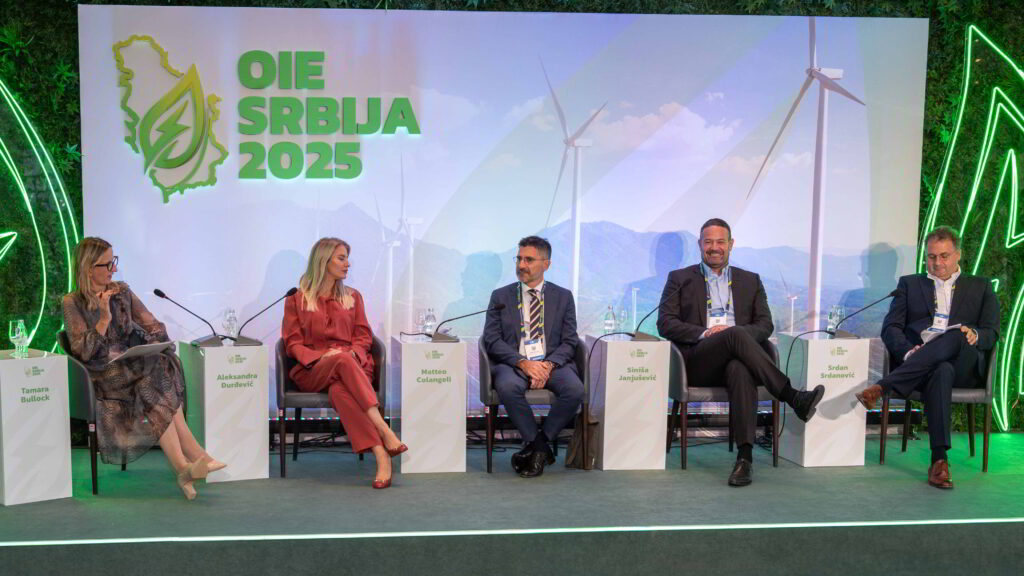The green transition is not only an environmental obligation, but also an economic opportunity; electric vehicles are the most important topic of the decarbonization industry; young consumers in the future will not want to buy products that are not green – these are some of the messages that could be heard at the ESG panel held at the RES SERBIA 2025 conference in Vrdnik.
Students of the ESG panel “Agreement on Green Industrial Transition in the Service of Decarbonization and Achieving the Sustainable Development Goals” discussed obstacles to the adoption of electric vehicles in Serbia, decarbonization as a way to save energy, but also money, and the importance of evaluating the Sustainable Development Goals in projects.
Participants in the panel were Aleksandra Đurđević, CEO of Delta Auto Group, Matteo Colangeli, Regional Head of the EBRD for the Western Balkans, Siniša Janjušević, Director for Serbia of Interenergo, Srdan Srdanović, Head of Smart Infrastructure Siemens Serbia. The moderator of the discussion was Tamara Bullock, Director of Corporate Affairs for Europe and America of Tetra Pak.
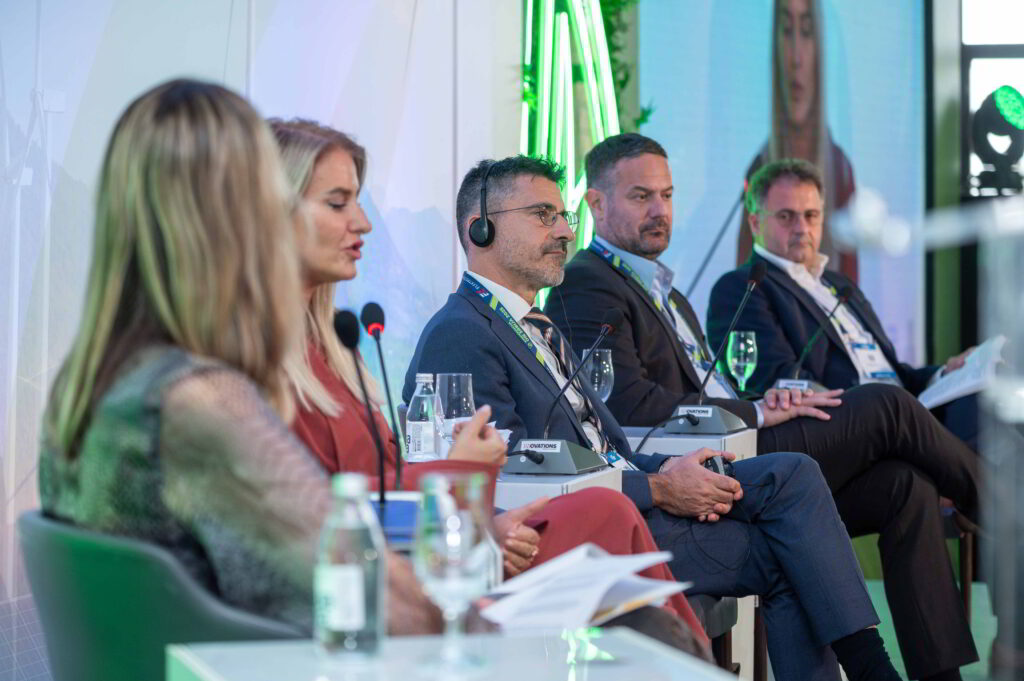
Electric vehicle market in Serbia – obstacles and opportunities
Aleksandra Đurđević, CEO of Delta Auto Group, said that electric vehicles in Europe occupy almost 16% of the market, but that in Serbia they are still not being adopted at the speed they should be.
Among the reasons for this are the lack of infrastructure, strategies, but also the unregulated import of used vehicles, she added.
– All vehicles that cannot be imported in Europe can be imported in Serbia. The sale of electric vehicles makes no sense if we import those biggest polluters – emphasized Đurđević.
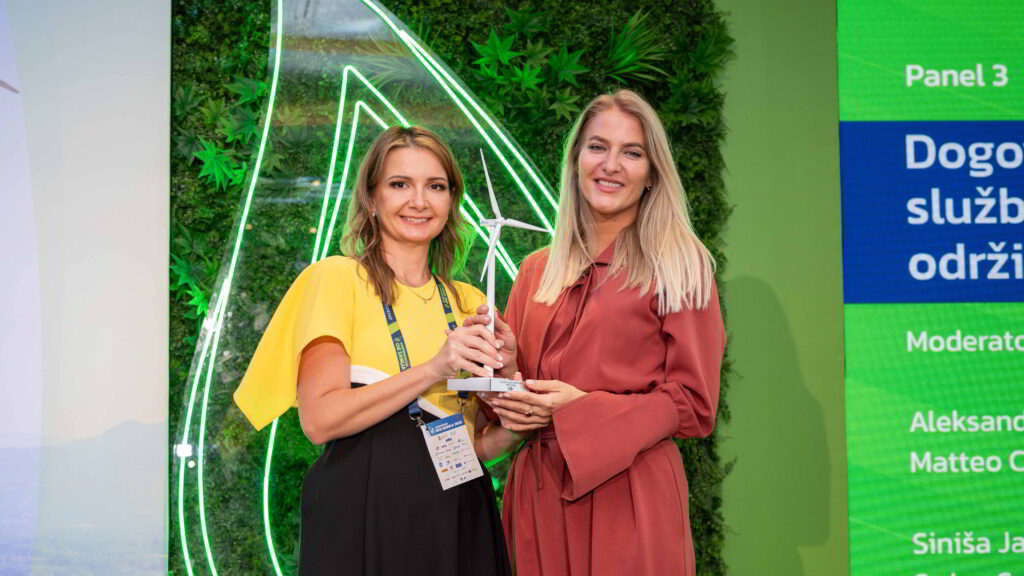
Manager of RES Serbia Danijela Isailović and Aleksandra Đurđević
According to her, state incentives are very important for the development of the electric vehicle industry. As she pointed out, there is no country where you can start selling electric vehicles without subsidies. Đurđević assessed that the situation with the sale of electric vehicles is better, but it must be even better.
– We are working on market education, but without the state and strategy and serious help, it will not work. In Serbia, subsidies have existed for a few years and are within the correct framework, the amount is stimulating, 5,000 EUR for electric vehicles, but the budget needs to be increased and the process simplified. Among the challenges is the discontinuity that is happening now, we find out late that the spent funds are earmarked for subsidies – pointed out Đurđević, adding that greater acceptance of electric vehicles would also happen by introducing other types of incentives – Anyone who lives in the city center would be able to park their electric car for free. Abolishing or reducing tolls is one way.
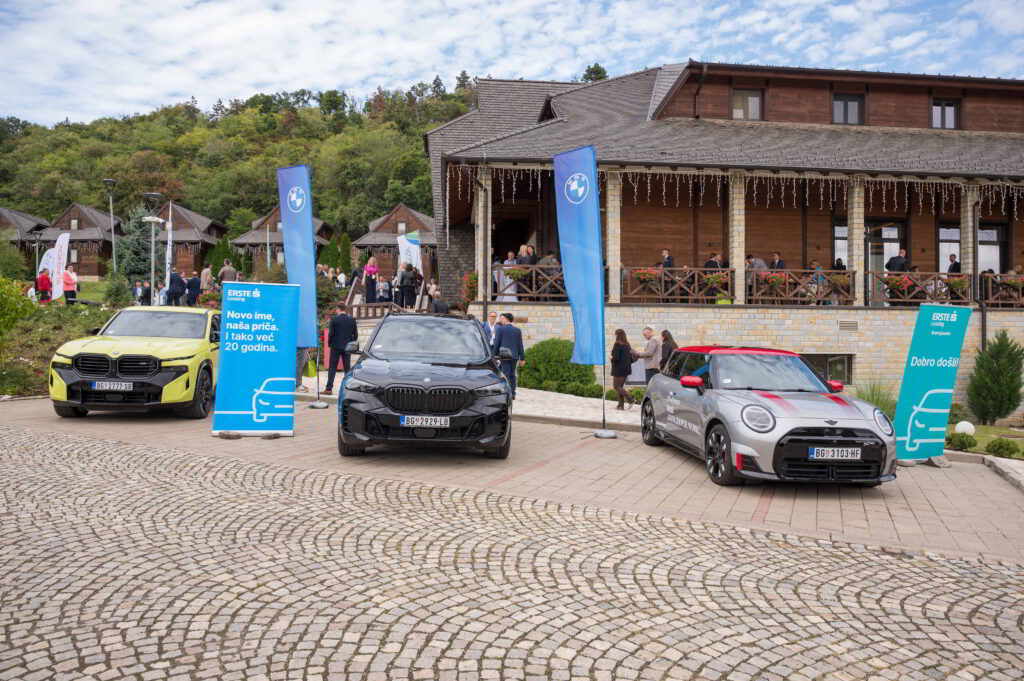
She said that electric vehicles are the most important topic of the decarbonization industry.
– The deadline for banning the sale of internal combustion vehicles is approaching. Manufacturers are under a lot of pressure, but the problem is not to produce electric vehicles, but how they will be able to be used. Batteries are getting cheaper and more efficient, chargers are getting faster, the question is when in the near future the production of electric vehicles will equal the production of vehicles with traditional drive. Manufacturers are also developing hydrogen, but the direction the world is taking is this, accelerated electrification awaits us – concludes Đurđević.
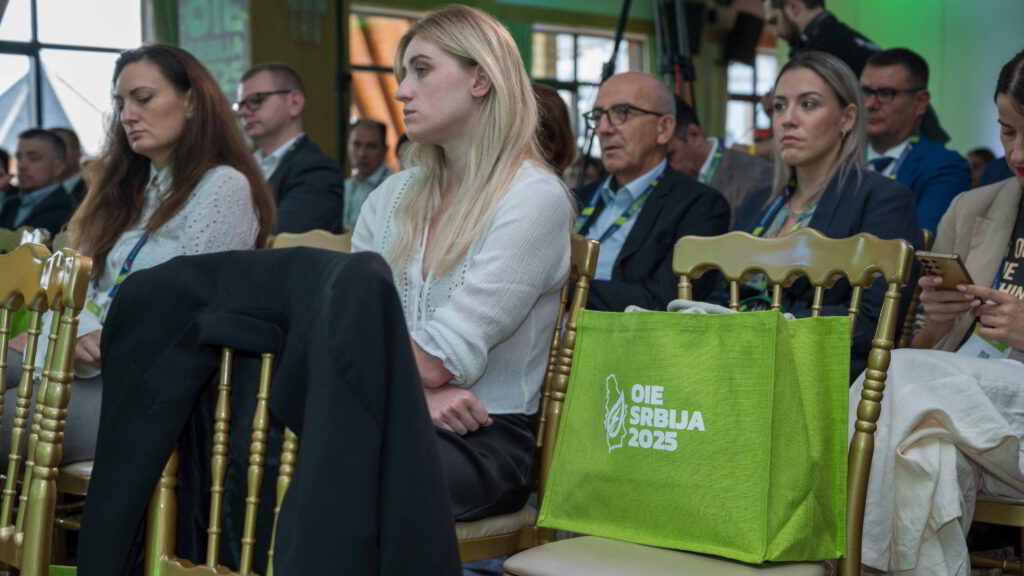
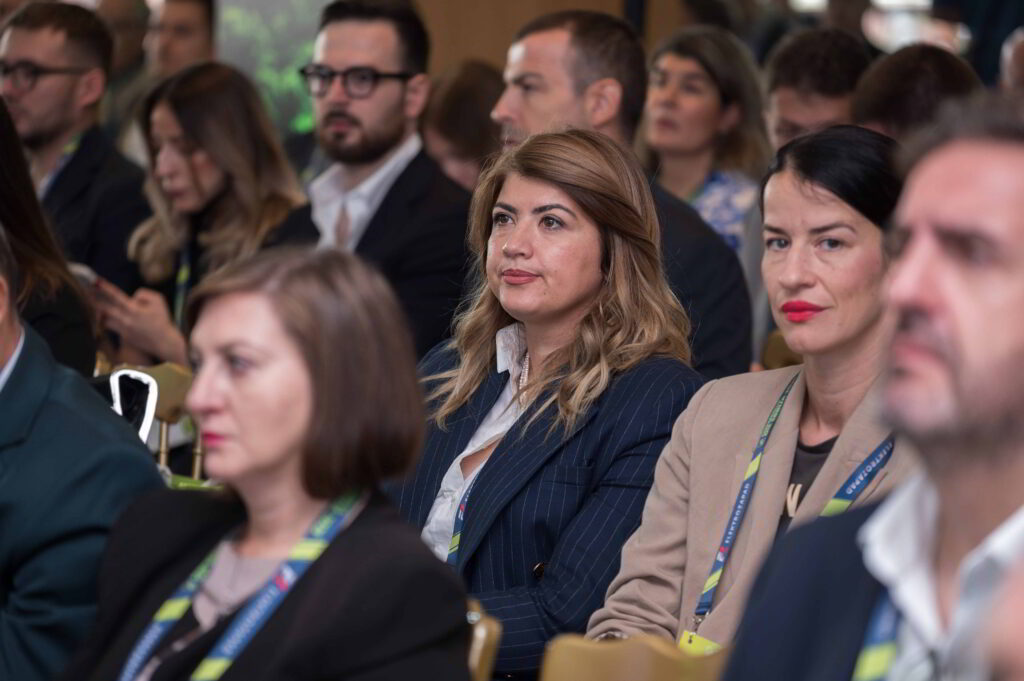
Decarbonisation pays off
Siniša Janjušević, Director for Serbia at Interenergo, points out that this company launched the first phase of its first wind park in Bosnia and Herzegovina Ivan Sedlo this spring, and that they are finishing the Đevđelija project, the company’s first wind park in North Macedonia.
– In Serbia, we rely more and more on the purchase of existing projects – emphasized Janjušević.
He tells companies that it is necessary to think in the direction of decarbonization.
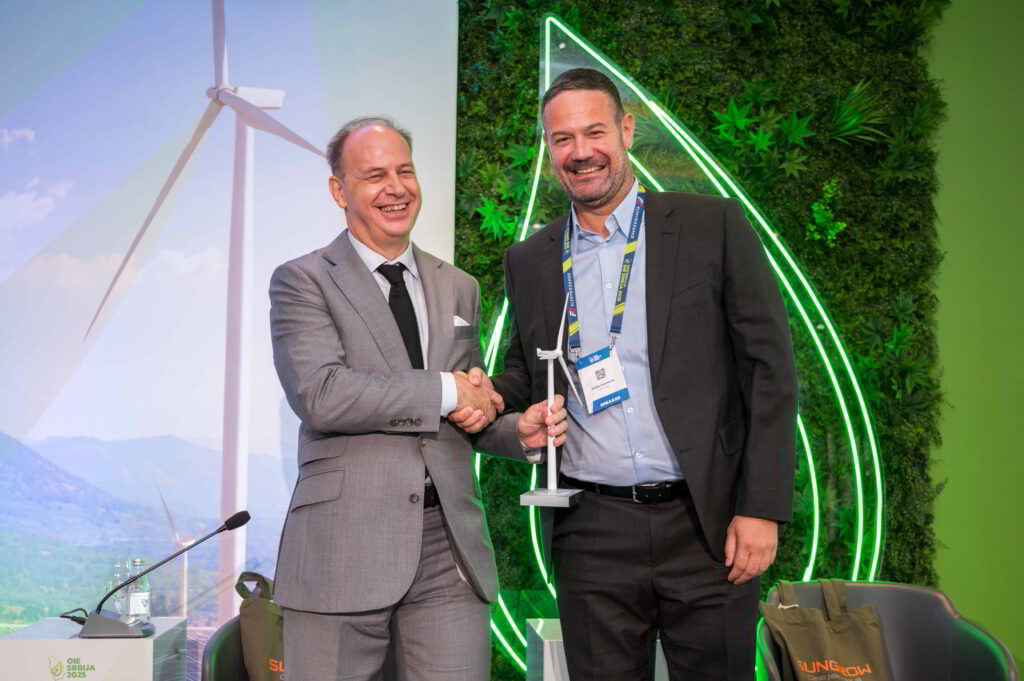
Director of Masdar Taaleri Generation Vladimir Milanović and Siniša Janjušević
– It pays off very well, both in terms of investment, energy savings, and marketing. There will come a time when young people will not want to buy products that are not green. We must respect the principles of the Sustainable Development Goals and value them in projects – Janjušević warned.
Serbia is on a good path
Matteo Colangeli, Regional Head of the European Bank for Reconstruction and Development for the Western Balkans, assessed that Serbia is on the right track when it comes to the development of renewable energy sources. According to him, wind and solar energy together can contribute to Serbia’s energy security.
Colangeli reminded that the EU is introducing a Carbon Border Adjustment Mechanism (CBAM) from next year.
– One of the most difficult discussions at the moment is the introduction of carbon taxes – pointed out the Regional Head of the EBRD for the Western Balkans.
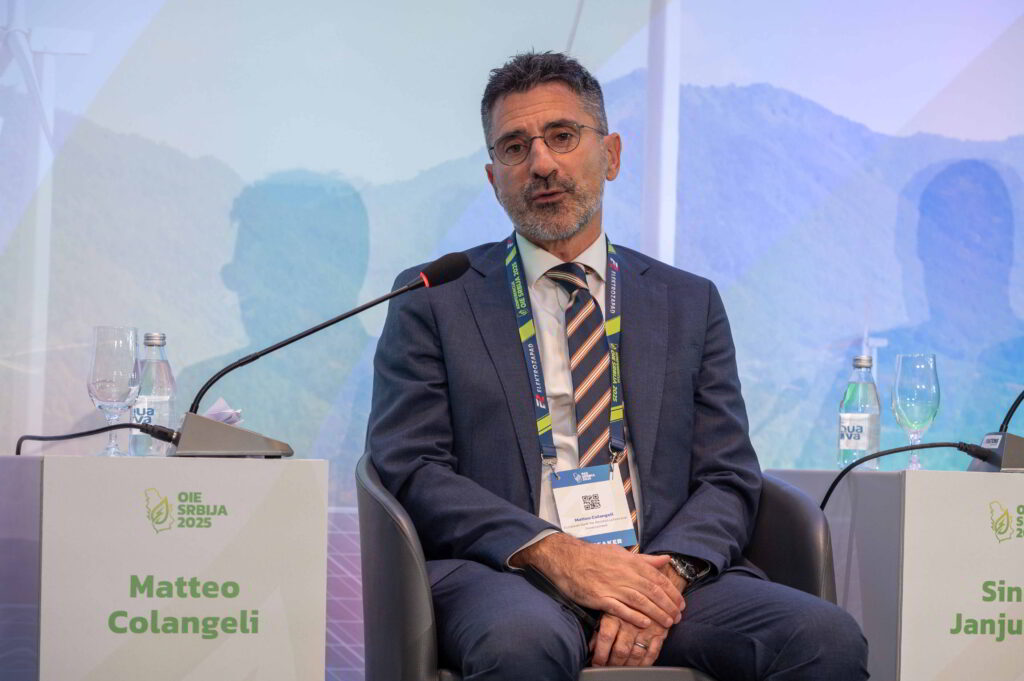
Matteo Colangeli, Regional Head of the European Bank for Reconstruction and Development for the Western Balkans
Speaking about how the EBRD chooses the projects it will support, he emphasized the importance of environmental protection.
– The impact of energy projects on local communities is very important. It is often one of the important variables whether our bank can support a project – said Colangeli.
The green transition is not only an environmental obligation
Srdan Srdanović, Head of the Smart Infrastructure Siemens Serbia, said that Siemens stands out as an active participant in the green transformation through its increasingly intensive efforts in the direction of sustainable development.
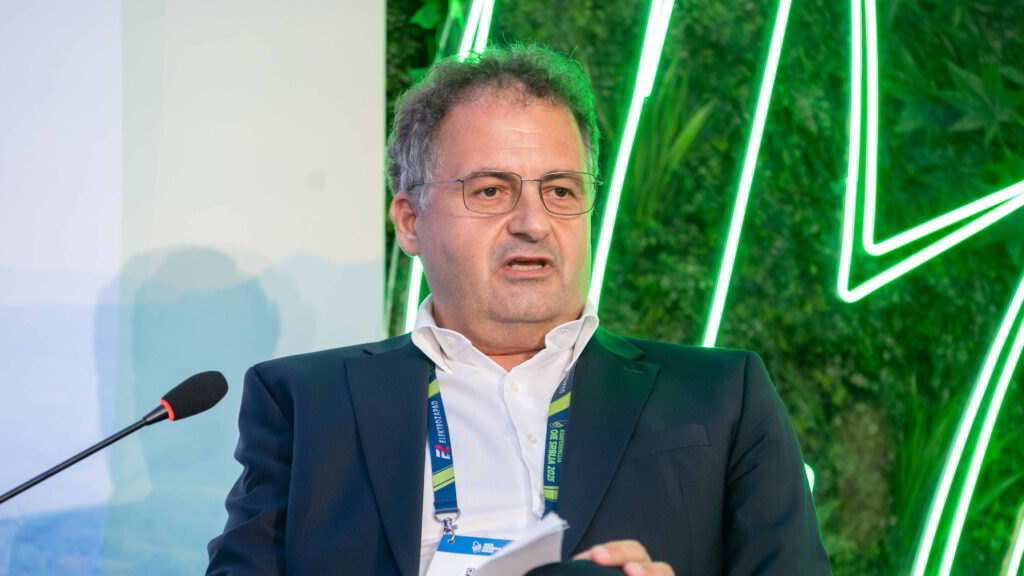
Srdan Srdanović, Head of the Smart Infrastructure Siemens Serbia
He spoke about technologies that are transforming industries towards a sustainable future, from the Siemens Xcelerator platform, through the DEGREE framework, to the path to net-zero emissions by 2030.
– Today, more than 90% of Siemens products have a direct positive impact on sustainability. Green transition is not only an environmental obligation, but also an economic opportunity – concluded Srdanović.
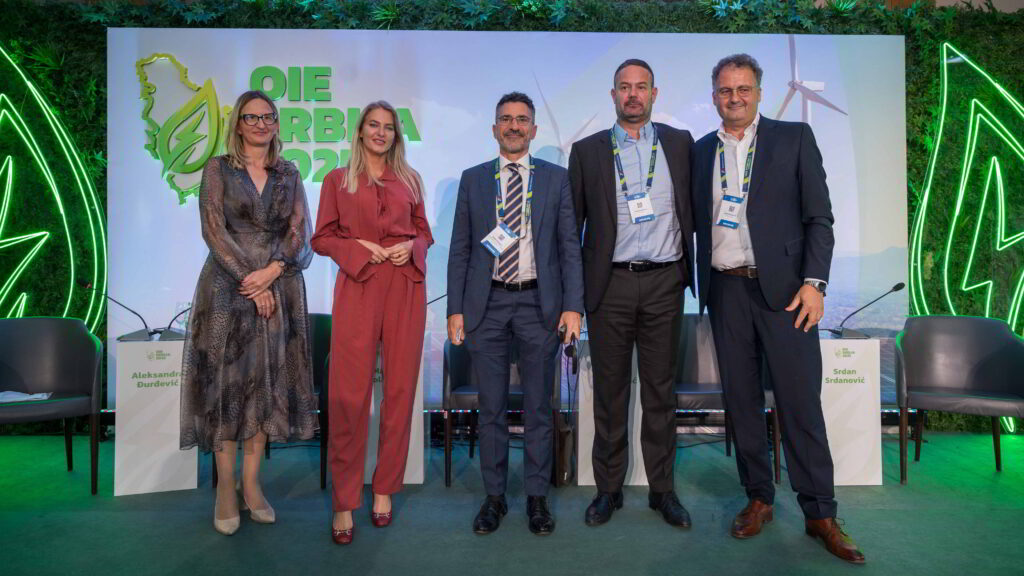
The RES SERBIA 2025 conference gathered, for the fifth year in a row, decision-makers, representatives of companies, investors, banks, and the academic community. The organizer of the conference is the Association Renewable Energy Sources of Serbia.


